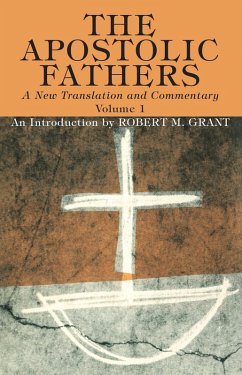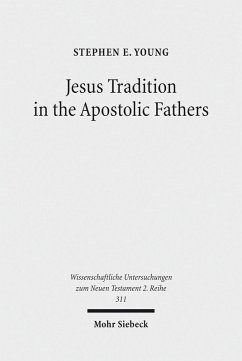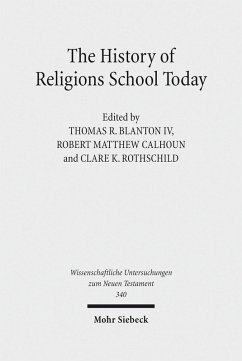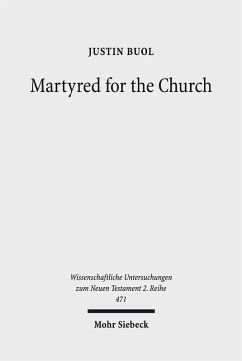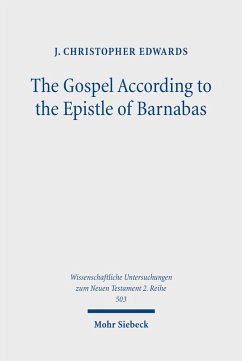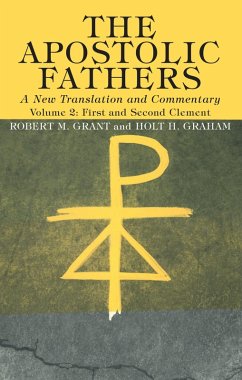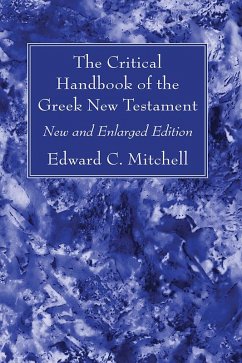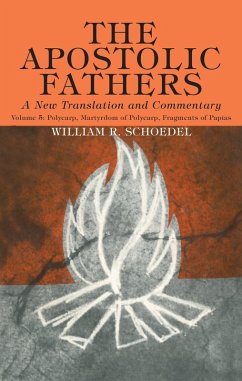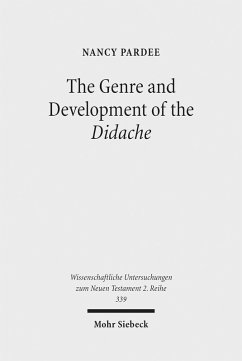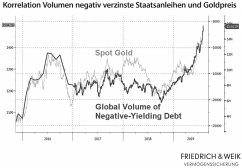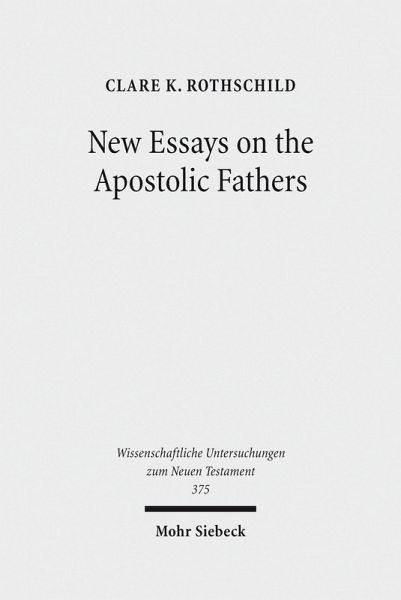
New Essays on the Apostolic Fathers (eBook, PDF)

PAYBACK Punkte
0 °P sammeln!
This volume comprises fifteen new essays on the Apostolic Fathers with a focus on the letters of Clement. An introductory essay investigates the role of seventeenth-century librarians in the origination of the collection's title. Five essays concern 1 Clement, exploring its relationship to 1 Corinthians, its generic classification, the discussion of 'Christian education' (1 Clem. 21:8), the golden calf tradition, and the well-known legend of the regeneration of the phoenix. Three essays treat aspects of 2 Clement, including problems with recent translations of chapter 1, the motif of the barre...
This volume comprises fifteen new essays on the Apostolic Fathers with a focus on the letters of Clement. An introductory essay investigates the role of seventeenth-century librarians in the origination of the collection's title. Five essays concern 1 Clement, exploring its relationship to 1 Corinthians, its generic classification, the discussion of 'Christian education' (1 Clem. 21:8), the golden calf tradition, and the well-known legend of the regeneration of the phoenix. Three essays treat aspects of 2 Clement, including problems with recent translations of chapter 1, the motif of the barren woman in chapter 2, and the analogy of faith as a race in chapter 7. One study probes the Quintus incident in Martyrdom of Polycarp 4 as emblematic of the literary and cultural conventions of second-century sophism. Another study considers protection against exploitation of Christian generosity by visitors in Didache 12. Another contribution investigates the precise nature of allegory in the Epistle of Barnabas. A short piece on the Epistle of Diognetus argues that the ancient moral-philosophical topos of the invisible God is at work in this text; and, a final essay explores the popular second-century medical theory behind Hermas's presentation of ???????? ('irascibility') in Mand. 5.1.3 (33.3). The volume ranges widely within and beyond early Christian literature - from the streets of ancient Achaean and Asian ?????? to the early modern libraries of Europe. Born 1964; 1986 BA University of California, Berkeley; 1992 MTS Harvard University; 2003 PhD University of Chicago; 2006 postdoctoral fellow Alexander von Humboldt Foundation at Ludwig-Maximilians-Universität München; currently Professor of Scripture, Department of Theology, Lewis University (USA) and Professor Extraordinary, Department Ancient Studies at Stellenbosch University (South Africa).
Dieser Download kann aus rechtlichen Gründen nur mit Rechnungsadresse in A, B, BG, CY, CZ, D, DK, EW, E, FIN, F, GR, HR, H, IRL, I, LT, L, LR, M, NL, PL, P, R, S, SLO, SK ausgeliefert werden.




